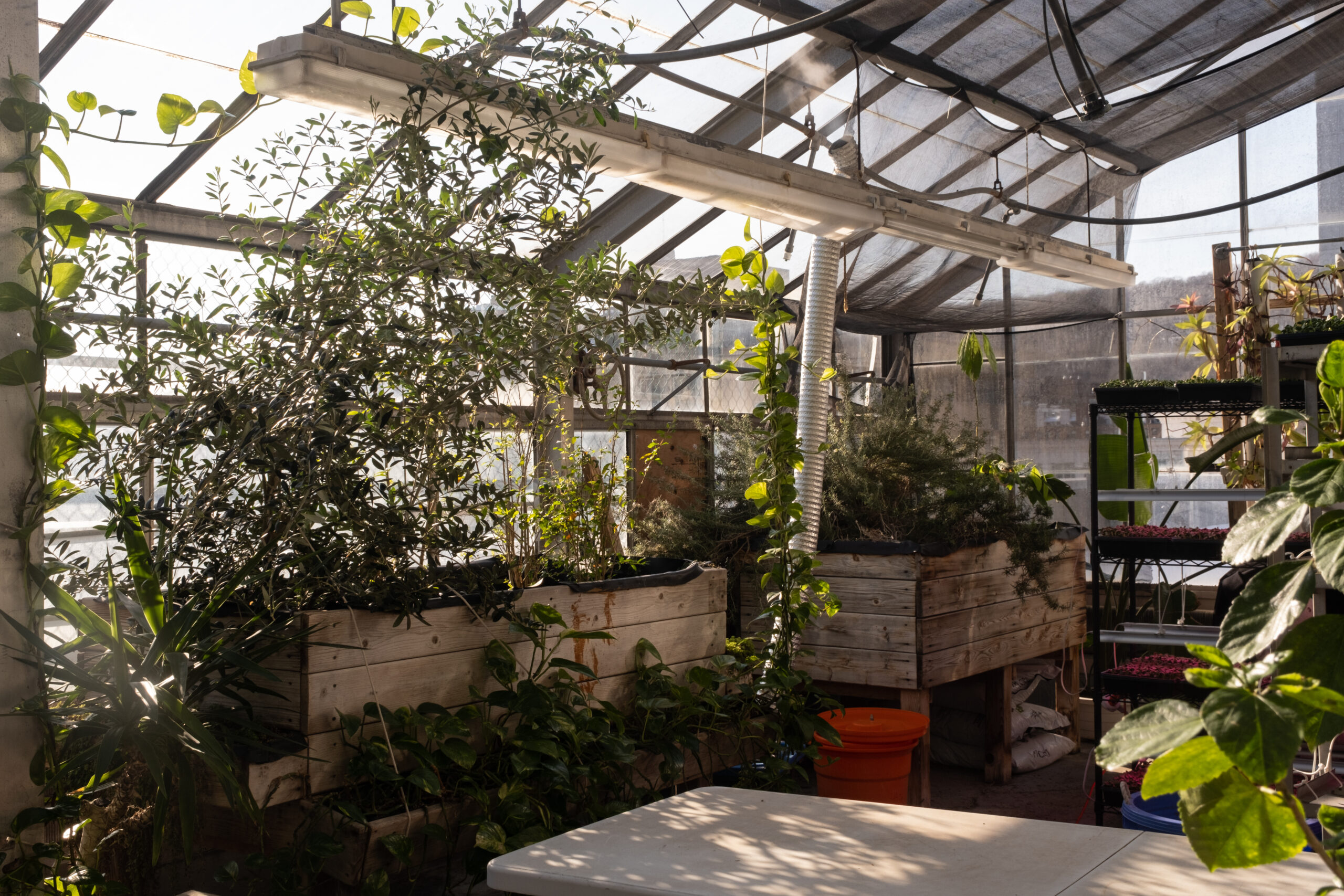The Urban Agriculture lab is supporting agricultural projects within the city of Montreal – projects aimed not at filling your plates up but making you think
Montreal is a popular city for urban farms — more than 4.3 square kilometers of agricultural land around the island according to the Louis Bonduelle Foundation, an international organization dedicated to sustainable food missions.
Some of these farms are in the west of the island and despite being called urban farms, they are traditional farms in less urbanized areas of the island. The Urban Agriculture Lab (AU/LAB) is taking urban agriculture a step further by developing innovative agricultural techniques and connecting motivated individuals with land for their projects.
Vignes en ville is the success story of the Urban Agriculture Lab. Launched in 2017, and supported by the Urban Agriculture Lab, its vineyards are planted on five different roofs around Montreal.
“Urban agriculture is not meant to nourish the city,” said Véronique Lemieux, the founder of Vignes en ville. It shifts the focus from an unrealistic ideal of a city fed by its roof gardens, and chimeric proximity agriculture that relies on subsidies to survive, showing the lack of real need or interest from the inhabitants.
Education is the focus of urban agriculture; “It allows people that don’t necessarily have access to the soil to discover new ingredients, texture, colours.” said Lemieux.
She mentioned that some people don’t know what a potato plant looks like because they are not exposed to potato plants in their daily lives and don’t need to be. Yet, knowing what a plant looks like implies you know how it grows but also how hard it is to make it grow — giving value to the products.
Lemieux’s goal is to create initiatives that “bring a real solution. The point is not to be in competition with bio-intensive farmers, there are families behind these farms.”
The lab is developing innovative forms of agriculture by using existing agricultural knowledge and adapting it to the city’s needs: what needs to be produced, or recycled.
Vignes en ville, with the help of the Urban Agriculture Lab, responded to a need to recycle glass in the city: the sandy soil needed by the vine to grow can be replaced by crushed glass from used bottles, which avoids having to bring sand from mines from outside of the city. “You can’t destroy nature to develop agriculture in the city,” said Lemieux. According to Lemieux, 20,000 glass bottles were recycled in partnership with the SAQ, supplying a total of 345 vines around the roofs of the city, all with glass enriched soil.
The Urban Agriculture Lab’s new project, MontréalCulteurs, is a program inspired by the Parisculteur program launched in Paris in 2016. It links people with an empty plot of land, an available roof, basement, parking lot or any available space to facilitate urban agriculture businesses in need of space.
The Vignes en ville project is the perfect example: launched before the start of MontréalCulteurs, Lemieux had to approach the Urban Agriculture Lab proactively and convince them to start the Vignes en Villes project. The Urban Agriculture Lab is currently taking applications for starting urban agriculture companies via their email. The application needs to have a clear plan to start the project before 2023 and to be able to generate at least $5,000 in sales.
With just under 50 projects around the island, the Urban Agriculture Lab helps Montreal to be a leader in urban agriculture.
If you’re interested in projects like what the Urban Agriculture Lab is doing, contact the organization and the next Montreal melon roof farm project could be yours.
Photos by Kaitlynn Rodney




